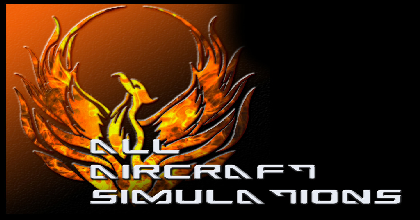05.10.2008, 21:05
![[Image: grab3005gk1.jpg]](http://img161.imageshack.us/img161/5824/grab3005gk1.jpg)
By catahoulak9 at 2008-10-05
Download link updated 03/29/10
Download here:
http://www.mediafire.com/?hqjmaohzdmd
The Beamont Modification
S/Ldr. R.P. Beamont commanded a squadron of Hawker Typhoons engaged in low-level attacks on German installations in occupied France. Low clouds and poor visibility were often encountered, and it was found that, even if the gunsight lamp was turned right down, the large ring and range bar tended to obscure tracking and target aquisition. Beamont decided to cut down the graticule pattern on his Mk II* sight, so squadron armourers blanked off the ring and bars, leaving only the centre dot visible. The smaller aiming ring proved a big success: Beamont could discern much more without the large orange glow.
On subsequent operations he realised that it would be even better if the glass reflector screen was removed and the graticule projected onto the windscreen, the rake of which was 45 degrees. The following day he used the sight in an attack on an installation in the Lille area, and found he had a better field of view than ever before, so he had all No.609 squadron's sights altered to the same configuration. When news of this modification reached the authorities, terse instructions were issued to remove the unauthorised alterations forthwith. Eventually it was agreed that in low light conditions the system had its advantages, and the spot was easily seen in full daylight conditions if the brightness was fully turned up.
Type I Mk III Projector Sight
Beamont's modification was taken up by Farnborough and a new version of the Mk II* sight was designed with the reflector screen removed and the graticule modified to a plain 161 km/h (100 mph) ring and dot. The two control rings were replaced by a single ring which moved the graticule forwards or backwards, raising or lowering it on the windscreen. A dual-purpose graticule was devised consisting of an adjustable ring for rocket-firing and a dot for the guns. An angle of depression scale was fitted, but it was found that a white celluloid strip, on which a pilot marked settings for various dive angles with a marker, was more practical. A detachable shroud was fitted over the sight head to prevent images of the sun being reflected into the pilot's eyes.
Trials revealed several shortcomings in this model, which was known as the Type 1 Mk III projector sight: the graticule was dim and allowed very little eye movement. However, a simpler modification was agreed in which the graticule reverted to a single dot only, without a reflector glass. A production order was issued for this version, which was first officially used when the Hawker Tempest Mk V entered service in February 1944. Similarly altered Mk IIs were also used by night-fighter and Typhoon squadrons. Beamont's modification was further improved when Grade A armoured windscreens became available. These were optically correct, and prevented the double image which sometimes occurred if the lamp was turned up to high (shades of the GM5). In a special night-fighter version tested by the Fighter Interception Unit in November 1942, a green filter diffuser cell was inserted between the lamp and the graticule to enable tracer to be seen to a maximum range at night. Another idea tested by the Air Fighting Development Unit consisted of an optically correct reflector glass screen the same size as the windscreen fitted 38 mm (1.5 in) behind it, which gave the pilot much more eye movement.
More than 84,000 GM2 sights were manufactured, mostly by Barr & Stroud, the production of lenses alone amounting to over 1 million units. The production versions were as follows:
Mark II: Oval reflector with sun screen
Mark IIs: Rectangular reflector with no sun screen
Mark II*: Similar to the IIs, slightly different dimensions
Mark IIL: Adjustable sight head (0-5 degrees) for rocket firing and 40 mm guns
Mark III: Produced by Goerz
Type 1: Mark 1 (Projector) open/shut graticule one ring only
Type 1: Mark 111 (Projector) dot graticule
Type 1: Mark 8 (Projector) standard range/base graticule
Taken from "British Aircraft Armament Vol.2: Guns and Gunsights", by R Wallace Clarke.


![[Image: grab3003sh3.jpg]](http://img88.imageshack.us/img88/7321/grab3003sh3.jpg)